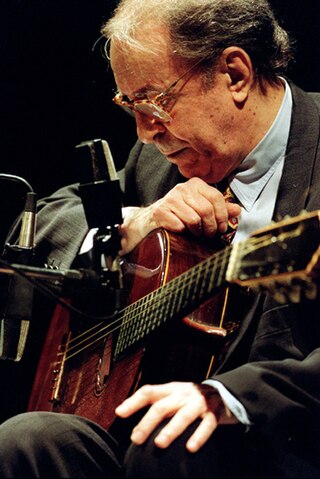
João Gilberto was a Brazilian guitarist, singer, and composer who was a pioneer of the musical genre of bossa nova in the late 1950s. Around the world, he was often called the "father of bossa nova"; in his native Brazil, he was referred to as "O Mito" . In 1965, the album Getz/Gilberto was the first jazz record to win the Grammy Award for Album of the Year. It also won Best Jazz Instrumental Album – Individual or Group and Best Engineered Album, Non-Classical. Nominated at the Grammy 1978 in the category Best Jazz Vocal Performance, album Amoroso, and winner category in Grammy 2001 with João voz e violão Best World Music Album.

"Garota de Ipanema", "The Girl from Ipanema", is a Brazilian bossa nova and jazz song. It was a worldwide hit in the mid-1960s and won a Grammy for Record of the Year in 1965. It was written in 1962, with music by Antônio Carlos Jobim and Portuguese lyrics by Vinícius de Moraes. English lyrics were written later by Norman Gimbel.

Getz/Gilberto is an album by American saxophonist Stan Getz and Brazilian guitarist João Gilberto, featuring pianist and composer Antônio Carlos Jobim, who also composed many of the tracks. It was released in March 1964 by Verve Records. The album features the vocals of Astrud Gilberto on two tracks, "Garota de Ipanema" and "Corcovado". The artwork was done by artist Olga Albizu. Getz/Gilberto is a jazz and bossa nova album and includes tracks such as "Desafinado", "Corcovado", and "Garota de Ipanema". The last received a Grammy Award for Record of the Year and started Astrud Gilberto's career. "Doralice" and "Para Machucar Meu Coração" strengthened Gilberto's and Jobim's respect for the tradition of pre-bossa nova samba.
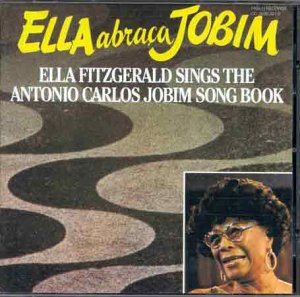
Ella Abraça Jobim or Ella Fitzgerald Sings the Antonio Carlos Jobim Songbook is a 1981 studio album by Ella Fitzgerald, devoted to the songs of Antônio Carlos Jobim.
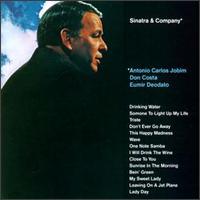
Sinatra & Company is an album by American singer Frank Sinatra released in 1971.

The Composer of Desafinado, Plays is the first album by Antônio Carlos Jobim. Released in 1963, the album features a dozen instrumentals arranged by Claus Ogerman, whose work would mark the beginning of a lifelong musical relationship with Jobim. Of these twelve songs, nearly all of them are jazz standards. The opening track "The Girl from Ipanema" is believed to be the second most recorded song in history behind The Beatles' "Yesterday," and a recording of the song by Astrud Gilberto and Stan Getz became a worldwide hit in 1964.
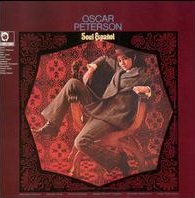
Soul Español is an album by jazz pianist Oscar Peterson, released in 1966. It focuses mostly on the music of Brazilian composers.
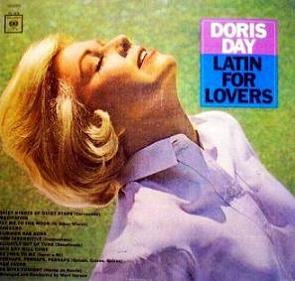
Latin for Lovers was a Doris Day album, mostly composed of songs originating in Latin America, released by Columbia Records on March 22, 1965 as a monophonic LP and a stereophonic album.
"Corcovado" is a bossa nova song and jazz standard written by Antônio Carlos Jobim in 1960. English lyrics were later written by Gene Lees. The Portuguese title refers to the Corcovado mountain in Rio de Janeiro.
"Meditation" is a bossa nova and jazz standard song composed by Antônio Carlos Jobim and Newton Mendonça. The English version has lyrics by Norman Gimbel. In Finland, the song was recorded in 1963 by Olavi Virta with lyrics by Sauki under the title "Hymy, flower and love". Erkki Liikanen recorded the song in 1967 with lyrics by Aarno Raninen under the title "Taas on hiljaisuus".
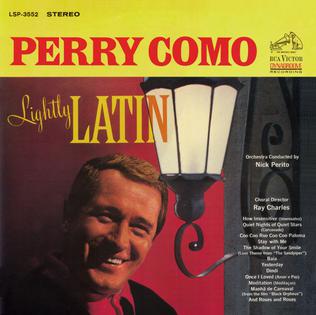
Lightly Latin is Perry Como's 13th RCA Victor 12" long-play album.
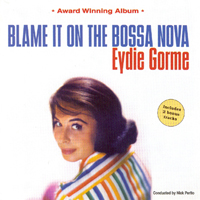
"Blame It on the Bossa Nova" is a song written by Cynthia Weil (lyrics) and Barry Mann which was a 1963 hit single for Eydie Gormé, reaching number 7 on the Hot 100 in Billboard in March 1963. The song also peaked at number 32 in the UK, whereas "Yes, My Darling Daughter" became the biggest hit for Eydie there, reaching number 10.
"Samba de uma Nota Só", known in English as "One Note Samba", is a bossa nova and jazz standard song composed by Antônio Carlos Jobim with Portuguese lyrics by Newton Mendonça. The English lyrics were written by Jon Hendricks. It was first recorded by João Gilberto in 1960 for his album O Amor, o Sorriso e a Flor.

The Shadow of Your Smile is the eighteenth studio album by American pop singer Andy Williams and was released in April 1966 by Columbia Records and included covers of "Michelle" and "Yesterday", the same pair of Beatles ballads that labelmate Johnny Mathis recorded for his 1966 album of the same name. For Williams these selections initiated a trend away from the traditional pop formula that his album output at Columbia up until this point had adhered to.
In the late 1960s, Latin jazz, combining rhythms from African and Latin American countries, often played on instruments such as conga, timbale, güiro, and claves, with jazz and classical harmonies played on typical jazz instruments broke through. There are two main varieties: Afro-Cuban jazz was played in the US right after the bebop period, while Brazilian jazz became more popular in the 1960s. Afro-Cuban jazz began as a movement in the mid-1950s as bebop musicians such as Dizzy Gillespie and Billy Taylor started Afro-Cuban bands influenced by such Cuban and Puerto Rican musicians as Xavier Cugat, Tito Puente, and Arturo Sandoval. Brazilian jazz such as bossa nova is derived from samba, with influences from jazz and other 20th-century classical and popular music styles. Bossa is generally moderately paced, with melodies sung in Portuguese or English. The style was pioneered by Brazilians João Gilberto and Antônio Carlos Jobim. The related term jazz-samba describes an adaptation of bossa nova compositions to the jazz idiom by American performers such as Stan Getz and Charlie Byrd.

Jazz 'n' Samba is an album by American jazz vibraphonist Milt Jackson featuring performances recorded in 1964 for the Impulse! label.

Here and Now is an album by American jazz pianist Hampton Hawes recorded in 1965 and released on the Contemporary label.

Rain Forest is a 1966 album by Walter Wanderley. It contains the pop crossover hit "Summer Samba", which reached No. 26 on the US Hot 100; the album itself reached No. 22 on the Top LPs chart.

How Glad I Am is a 1964 studio album by Nancy Wilson. It was one of her most successful albums, reaching #4 on the Billboard 200 and remaining on the chart for 31 weeks. The title track became her highest-charting single, peaking at #11 on the Billboard Hot 100, and earned her a Grammy Award for Best R&B Performance. The album also included two bossa nova songs by Antônio Carlos Jobim; two selections from the musical Funny Girl, which had recently opened its hit run on Broadway; a pair of tunes by Howlett Smith and Spence Maxwell; and a soul jazz number composed by Wes Montgomery, along with other material.















